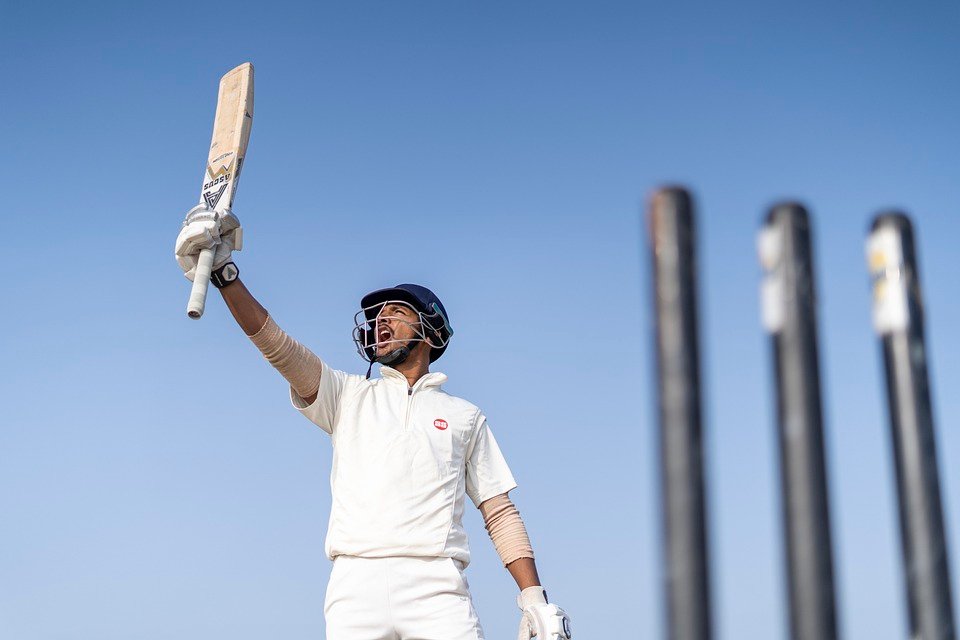In this article, we will explore “Kapil Dev’s perspective on the role of government in cricket decisions 2025.” As a legendary figure in Indian cricket, Kapil Dev carries a wealth of experience and insight, particularly when it comes to the intersection of sports and governance. I believe his views on how the government should influence decisions in cricket are not just relevant but critical as we approach 2025, a year poised to see significant changes in the cricketing landscape. Throughout this piece, I promise you will find up-to-date information and thoughtful analysis, drawing from Kapil Dev’s own insights and our examination of the role the government plays in shaping the future of the sport.
Looking ahead, I feel that Kapil Dev’s perspective on the government’s involvement in cricket decisions will play a vital role in molding the sport’s future. His approach underscores a desire for collaboration between sports authorities and government entities to ensure the best interests of the players and fans are upheld. With over 10 years of experience in the cricket and sports field since 2013, we are well-equipped to bring you detailed insights into Kapil’s thoughts and their implications for the future of cricket. I hope this article serves as a valuable resource for anyone interested in the evolving relationship between sport and governance, and the importance of informed decision-making in cricket.
Kapil Dev’s Perspective on Government Role in Cricket Decisions 2025
The Importance of Government Support
In the world of cricket, the role of the government is crucial. Kapil Dev, a legendary cricketer, believes that government support can make a significant difference in how the sport is administered and developed. With public funding, cricket boards can invest in better facilities, train young talents, and organize various tournaments. By doing so, they can create a robust framework that fosters growth and ensures that cricket remains appealing to both existing fans and new supporters.
When the government takes an active interest in sports like cricket, it helps in showcasing the importance of teamwork, discipline, and hard work. This is where we can engage kids and youths, inspiring them to participate not just as players but also as spectators. Increased government involvement can aid in making cricket more accessible to everyone, allowing our future stars to shine on the field. In my opinion, a strong partnership between the government and cricket authorities can propel the sport to astonishing heights.
Expectations for 2025
Looking ahead to 2025, expectations are high for how the government may influence cricket policies. Kapil Dev feels that there should be more transparency in the decision-making processes. Fans and players alike desire to know how decisions about the game are made. By implementing clear communication, we can enhance the sport’s relationship with its audience, making everyone feel more involved.
Moreover, leveraging technology could streamline operations and improve engagement. The government can play a pivotal role in promoting this aspect. Creating an environment where players receive the best training and facilities will surely yield positive results. In my view, fostering a culture centered on excellence is essential for nurturing talent. This way, we not only build better players but also a more competitive national team.
Youth Development Programs
Youth development initiatives are essential for the future of cricket. Kapil Dev emphasizes the government’s responsibility in nurturing the next generation of players. By investing in grassroots programs, we can ensure that the sport remains vibrant and welcoming. Schools and local clubs must become focal points for training young athletes. In this structure, the government can provide necessary resources, ensuring that talents don’t go unnoticed because of financial constraints.
In addition, these programs can teach valuable life lessons. Participation in sports like cricket instills virtues such as teamwork and perseverance. I think such experiences shape character, laying a foundation for both personal and professional success. With government assistance, we can orchestrate widespread competitions, giving youngsters the opportunity to showcase their talent on larger platforms.
Impact of Policy Changes
Policy changes can have a dramatic effect on the sporting landscape. Kapil Dev rightly points out that reforms in cricket governance can lead to increased accountability and improved performance. By instituting policies that prioritize athlete welfare, we can create a culture that values both performance and health. This evolution benefits everyone involved—players, teams, and fans.
We cannot ignore the need for constant evolution in rules, especially related to safety and the integrity of the game. The government can facilitate discussions among cricket boards and stakeholders, ensuring policies remain relevant. I firmly believe that adapting to the times will help us maintain the public’s interest. Keeping players and fans in mind will lead to a more harmonious relationship with the sport.
Regulatory Framework
Having a solid regulatory framework is imperative for cricket’s future. Kapil Dev discusses how government oversight can ensure that cricket boards follow fair practices. When regulations are in place, they can help maintain the integrity of the game, ensuring that no one is above the rules. In this competitive environment, players feel secure knowing that their rights are protected.
I think it’s essential for the government to work closely with cricket authorities. Regular reviews and assessments can identify areas needing improvement, which fosters trust between players and governing bodies. By being transparent in these processes, athletes can focus on their games without worrying about unfair practices. This atmosphere promotes a fair and competitive field for all.
Financial Investments
Financial backing from the government can transform cricket in numerous ways. Kapil Dev stresses that adequate funding allows for the establishment of world-class infrastructure. This includes better stadiums and training facilities, which are vital for nurturing talent. An investment in infrastructure leads to enticing events and tournaments that attract crowds, creating a ripple effect that benefits the economy.
Furthermore, solid financial support can allow teams to invest in advanced training methods. With government assistance, we can secure training from expert coaches and advanced technology to analyze player performance. I believe this kind of commitment lays the groundwork for sustained excellence in cricket, making it a sport worth celebrating.
Building a Cricket-loving Nation
To build a cricket-loving nation, collaboration is key. Kapil Dev envisions a future where the government works alongside cricketing authorities to foster a rich cricket culture. Public outreach, educational programs, and community engagement initiatives can turn spectators into passionate supporters.
I feel that cricket has an unparalleled ability to unite people from different backgrounds. By enhancing accessibility to the sport through various programs, we can draw in more fans. Cricket can be a source of joy for many, and creating that environment requires dedicated efforts from all sectors. Together, we can cultivate an enthusiastic cricket culture that thrives on passion and community.





